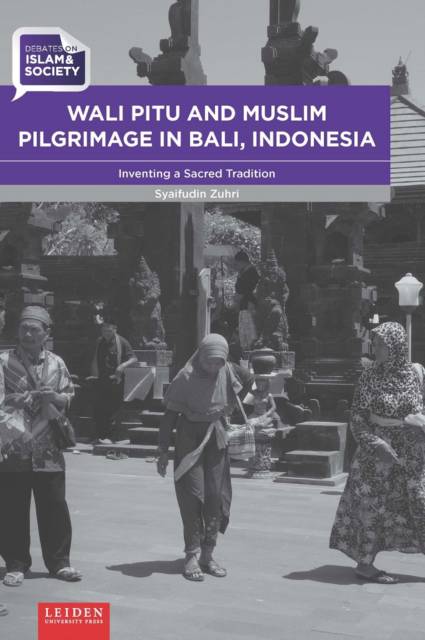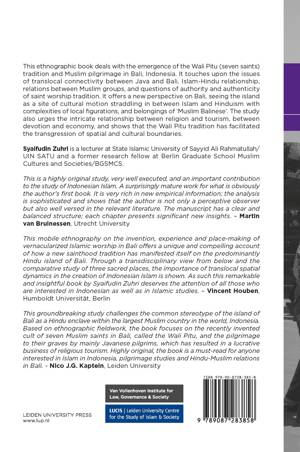
Je cadeautjes zeker op tijd in huis hebben voor de feestdagen? Kom langs in onze winkels en vind het perfecte geschenk!
- Afhalen na 1 uur in een winkel met voorraad
- Gratis thuislevering in België vanaf € 30
- Ruim aanbod met 7 miljoen producten
Je cadeautjes zeker op tijd in huis hebben voor de feestdagen? Kom langs in onze winkels en vind het perfecte geschenk!
- Afhalen na 1 uur in een winkel met voorraad
- Gratis thuislevering in België vanaf € 30
- Ruim aanbod met 7 miljoen producten
Zoeken
€ 104,00
+ 208 punten
Omschrijving
This ethnographic book deals with the emergence of the Wali Pitu (seven saints) tradition and Muslim pilgrimage in Bali, Indonesia. It touches upon the issues of translocal connectivity between Java and Bali, Islam-Hindu relationship, relations between Muslim groups, and questions of authority and authenticity of saint worship tradition. It offers a new perspective on Bali, seeing the island as a site of cultural motion straddling in between Islam and Hinduism with complexities of local figurations, and belongings of 'Muslim Balinese'. The study also urges the intricate relationship between religion and tourism, between devotion and economy, and shows that the Wali Pitu tradition has facilitated the transgression of spatial and cultural boundaries.
Specificaties
Betrokkenen
- Auteur(s):
- Uitgeverij:
Inhoud
- Aantal bladzijden:
- 314
- Taal:
- Engels
- Reeks:
- Reeksnummer:
- nr. 8
Eigenschappen
- Productcode (EAN):
- 9789087283858
- Verschijningsdatum:
- 1/03/2022
- Uitvoering:
- Hardcover
- Formaat:
- Genaaid
- Afmetingen:
- 157 mm x 236 mm
- Gewicht:
- 657 g

Alleen bij Standaard Boekhandel
+ 208 punten op je klantenkaart van Standaard Boekhandel
Beoordelingen
We publiceren alleen reviews die voldoen aan de voorwaarden voor reviews. Bekijk onze voorwaarden voor reviews.











